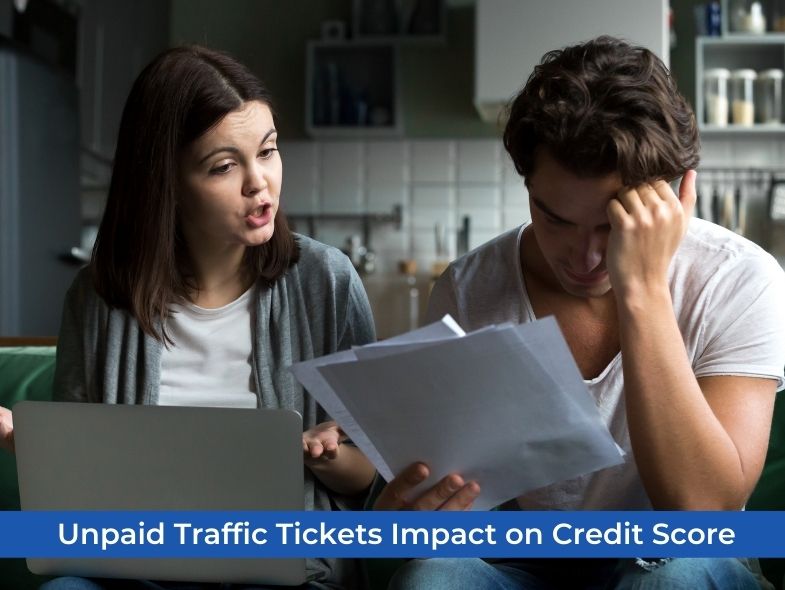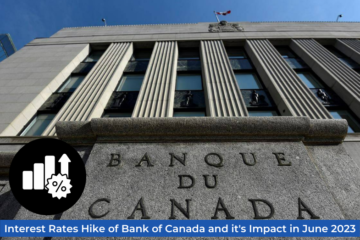Unpaid traffic tickets may seem simple, but they can also have consequences beyond immediate penalties and fines. In Canada, these unpaid traffic ticket can affect your credit score, leading to potential credit damage. Credit repair may also required if you do not pay attention to it.
Understanding Credit Scores
Before tackling how unpaid traffic tickets affect your credit score, it is essential to understand how credit score works. A credit score reflects an individual’s creditworthiness and is utilized by lenders, landlords, and other financial institutions to assess the risk associated with providing credit.
Unpaid Traffic Tickets and Credit Score
Unpaid traffic tickets are seemingly unrelated to credit but can indirectly impact credit scores. When a traffic ticket remains unpaid for an extended period, it may result in additional penalties, collections, or legal actions. These subsequent actions can be reported to credit bureaus and reflected in your credit history.
Credit Bureaus and Reporting
Canada has two major credit bureaus: TransUnion and Equifax. They maintain credit information. They receive updates from various sources, including lenders, financial institutions, collection agencies, and government entities.
If traffic tickets go unpaid and progress to collections or legal actions, these entities may report the delinquency to credit bureaus, negatively affecting your credit score.
Unpaid Traffic Tickets Impact on Credit Score
The impact of unpaid traffic tickets on credit scores can be significant. Even a single delinquency can decrease your credit score, potentially making it harder to obtain credit in the future.
Multiple unpaid tickets or significant penalties can worsen the impact, lowering your creditworthiness and increasing the risk associated with lending to you.
Resolving Unpaid Traffic Tickets
To prevent the consequences that unpaid traffic tickets may bring, it is essential to address the issue promptly. Below are some steps to consider:
1. Verify Outstanding Tickets. Start by verifying any outstanding traffic tickets against your name. Contact local law enforcement agencies or municipal courts for accurate information on unpaid fines.
2. Payment Options. Once you have confirmed the outstanding fines, explore the payment options available. Most jurisdictions offer online payment portals, mail-in options, or in-person payment facilities. Choose the method that suits you best and make the necessary payments.
3. Negotiate and Contest. In some cases, you can negotiate a reduction in fines or contest the ticket if you believe it was unjustly issued. Consult local resources or seek legal advice to understand the process and determine the best action.
4. Monitor Credit Reports. Regularly monitor your credit reports to ensure that the resolved ticket does not continue to impact your credit score. If the fixed ticket still needs to be corrected, affecting your credit, contact the credit bureaus to rectify the issue.
5. Establish Good Credit. To strengthen your creditworthiness, focus on establishing good credit habits. Pay bills and fines promptly, keep credit utilization low, and maintain a diverse credit portfolio. These habits will help rebuild and maintain a positive credit score.
Factors Influencing the Severity of Credit Damage
The severity of unpaid traffic tickets’ impact on your credit score may vary depending on several factors. Understanding these factors can provide you insights into the potential consequences.
• The number of Unpaid Tickets
The number of unpaid traffic tickets plays a significant role in determining the impact on your credit score. Multiple delinquencies can lead to a more substantial decrease in your creditworthiness than a single unpaid ticket.
• Outstanding Balances and Penalties
Late fees, interest charges, and collection costs can accumulate over time, further impacting your credit score.
• Length of Delinquency
The duration for which a traffic ticket remains unpaid can affect the severity of credit damage. The longer the delinquency persists, the more likely it is to escalate to collections or legal actions, leading to more significant credit repercussions.
• Reporting to Credit Bureaus
Whether or not the delinquency is reported to credit bureaus can influence the severity of credit damage. Some jurisdictions may not report traffic ticket delinquencies, while others do. If the unpaid ticket is reported, it can have a direct negative impact on your credit score.
• Other Credit Factors
It’s essential to consider how unpaid traffic tickets interact with other credit factors. If you already have a history of late payments, high credit utilization, or other credit issues, the impact of unpaid tickets on your credit score may be more pronounced.
• Jurisdictional Differences
Credit damage resulting from unpaid traffic tickets can vary across different provinces or territories in Canada. Some regions may have stricter enforcement policies or more efficient reporting mechanisms, potentially leading to more severe credit consequences.
Tips for Maintaining Credit Score Despite Past Unpaid Traffic Tickets
• Timely Payment of Debts and Bills
One of the most crucial factors in maintaining your credit score is paying your bills and debts on time. Ensure you pay your credit card bills, loans, utilities, and other financial obligations on or before the due date. Consistent on-time payments will demonstrate responsible economic behaviour.
• Reduce Credit Utilization
High credit utilization can significantly affect your credit score. Maintaining a low credit utilization, on the other hand, can help boost your credit score. Maintain your credit utilization below 40%. Paying your credit balance in full monthly can also help boost your credit score.
• Diversity of Your Credit Portfolio
Having a diverse credit portfolio can positively impact your credit score. Consider having a mix of credit types, such as credit cards, instalment loans, and mortgages. However, be cautious to refrain from taking on excessive debt or applying for multiple new credit accounts at once, as this can temporarily lower your score.
• Regularly Monitor Your Credit Reports
Stay vigilant by regularly monitoring your credit reports from major credit bureaus. Look for any inaccuracies, such as unpaid traffic tickets that have been resolved or any other errors that may be negatively impacting your credit score. Dispute any inaccuracies and ensure they are corrected promptly. Repair credit if needed.
• Build Positive Credit History
Establishing a positive credit history is crucial for improving your creditworthiness. Consider using a secured credit card or becoming an authorized user on someone else’s credit card to build or rebuild your credit. Make small purchases and consistently pay them off monthly to demonstrate responsible credit behaviour.
Conclusion:
Unpaid traffic tickets in Canada can harm credit scores and make it difficult to obtain credit. Resolving these tickets promptly, exploring payment options, and monitoring credit reports are crucial steps to prevent further damage. Individuals can protect their financial stability and maintain positive creditworthiness by taking proactive measures and adopting responsible credit habits.
Connect with us at Credit Repair Now.




